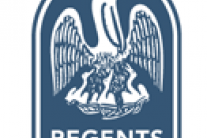Louisiana Board of Regents grants
Thu, 05/12/2022 - 11:52amDrs. Mark Genung (Biology, co-PI), Arun Kulshreshth (Computer Science, PI), Anna Paltseva (Geosciences, PI), and Xiang-Sheng Wang (Mathematics, PI) received funding totaling over $460,000 from the Louisiana Board of Regents.
Improving Engineering Education and the Pipeline of Engineering Majors Through a Preservice Teacher Bioinspired Engineering Maker Space and Curricular Enhancements
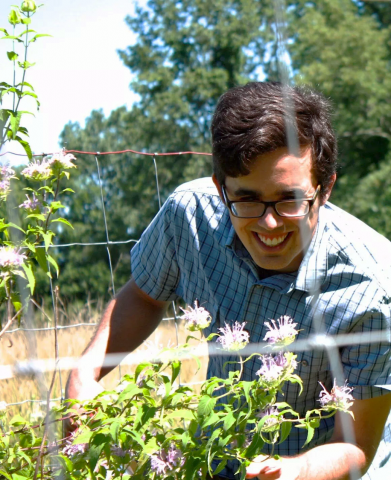
Mark Genung (Biology, coPI) and his colleagues in the college of education (Drs Williams, Barber, and Chambers)
This proposal seeks to enhance outreach to historically marginalized youth by developing a bioinspired makerspace outfitted with iPads, LEGO robot kits, hand tools, and desks on which to assemble projects. It presents a novel take on the maker space in that it is based on bioinspired surfaces and will provide students with an entirely new perspective on additive manufacturing.
Classifying Student Distraction Level in Educational Virtual Reality
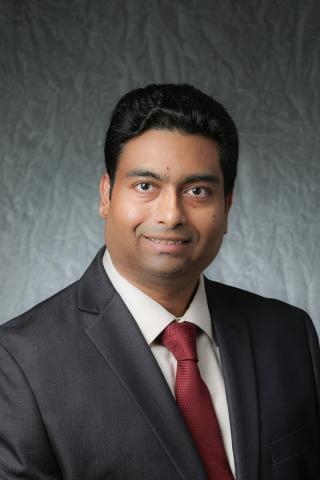
Arun Kulshreshth (Computer Science, PI)
Virtual Reality (VR) has long been suggested as a way to enhance education. Students can virtually take field trips to any place or learn about different machinery and how it works with reduced concern about safety and cost. Potential benefits of VR for education include increased engagement and motivation of students, better communication of size and spatial relationships of modeled objects, and stronger memories of the experience. In a real classroom, teachers have a sense of the audience’s engagement and actions from cues such as body movements, eye gaze, and facial expressions. This awareness is significantly reduced in a VR environment because a teacher cannot see students directly. Additionally, students get distracted in VR for a variety of reasons such as noise in the real environment around the student, distractions from other avatars, and checking external tools. To help these distracted students, the teacher needs to know the distraction level of students in the class. The PI proposes a system which will detect the distraction level of students in the educational VR environment using machine learning techniques applied to physiological sensor data (e.g., eye gaze, EEG, heart rate, etc.) collected from each student. The system would automatically filter students based on attention level and show a list of students who may need extra consideration, allowing a teacher to help these students.
Inventory of Heavy Metal Soil Concentrations in Lafayette, Louisiana Using X-ray Fluorescence Analysis, Geographic Information Systems, and Geostatistical Interpolation Methods
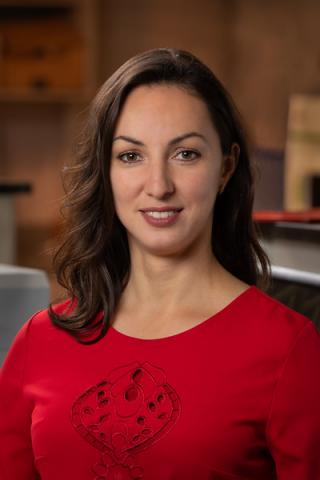
Anna Paltseva (Geosciences, PI)
While urban soil is a sink for contaminants derived from historical anthropogenic activities, most studies have focused on large urban centers, leaving smaller communities unexplored. Better characterization of metals’ varieties, concentration, and spatial distribution in urban areas is needed across different cities to address this problem. This research is a pilot study to determine the significance of metal contamination in Lafayette, Louisiana, a city impacted by a wide range of current and historical industries, highways, and railroads. At least 1,000 samples collected within two years across the city will be analyzed for lead, arsenic, nickel, zinc, chromium, and copper by portable X-ray fluorescence in the topsoil. Project deliverables will include a dataset and maps of metal concentrations available to the public and government agencies, a soil workshop and webinar, scientific articles, and a soil archive for future studies. The project team will build collaborations and strengthen partnerships with local communities to effectively address exposures to contaminants and foster informed community decision-making for promoting and establishing urban gardens or undertaking childhood lead exposure prevention. This study will broaden urban soils research and benefit society by raising awareness and communicating solutions that are typically beyond the reach of the layperson.
Enhanced Machine Learning and Dynamic Optimal Control of Emerging Infectious Diseases
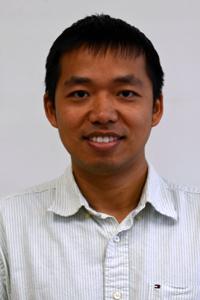
Xiang-Sheng Wang (Mathematics, PI)
The purposes of this proposal are (1) to understand the dynamics of infectious diseases from enhanced machine learning of epidemic data and (2) to contain the spread of infectious diseases via dynamic optimal control. The theory of enhanced machine learning will be developed to provide real-time forecasts during a disease outbreak. Optimal control problems will be formulated and the best strategy to contain the infectious disease will be determined. The following questions will be addressed: How long will the epidemic wave last? How many people will eventually be infected? Are hospital beds and medical resources sufficient during the outbreak? How effective are various control policies and what is the optimal control strategy? Is it possible that an early restoration might cause a second epidemic wave? The quantitative information on the disease outbreak obtained from the project will be shared and communicated with researchers in the field of epidemiology. The real-time forecasting results will provide the general public with reliable predictions of disease dynamics.

